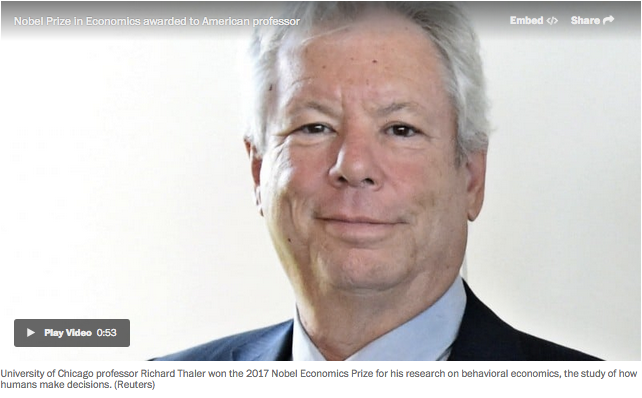Humans prefer instant gratification right now, even if they know that being patient would yield them more money or a better life down the road, Thaler found. He earned his PhD in economics at the University of Rochester in 1974 and appeared briefly in the 2015 film “The Big Short.”
“He is a pioneer on integrating economics and psychology,” the Nobel committee said Monday as it announced the prize. “He’s made economics more human.”
The committee praised Thaler for trying to “nudge” people to make better decisions. In addition to his scholarly papers and books, Thaler has written many commentaries over the years. In one, he scolded Congress for extending tax cuts for the wealthy and advocated for automatically enrolling people in retirement savings accounts.
Nudge is the title of Thaler’s blog as well as his 2008 book, “Nudge: Improving Decisions about Health, Wealth and Happiness,” written with Harvard Law School professor Cass Sunstein.
The Nobel Prize in economics is not one of the original prizes established by Alfred Nobel in the late 1800s. It was added in 1968 after a donation by the Swedish National Bank, and first awarded the following year. Most of the winners have been men from the United States or Western Europe.




